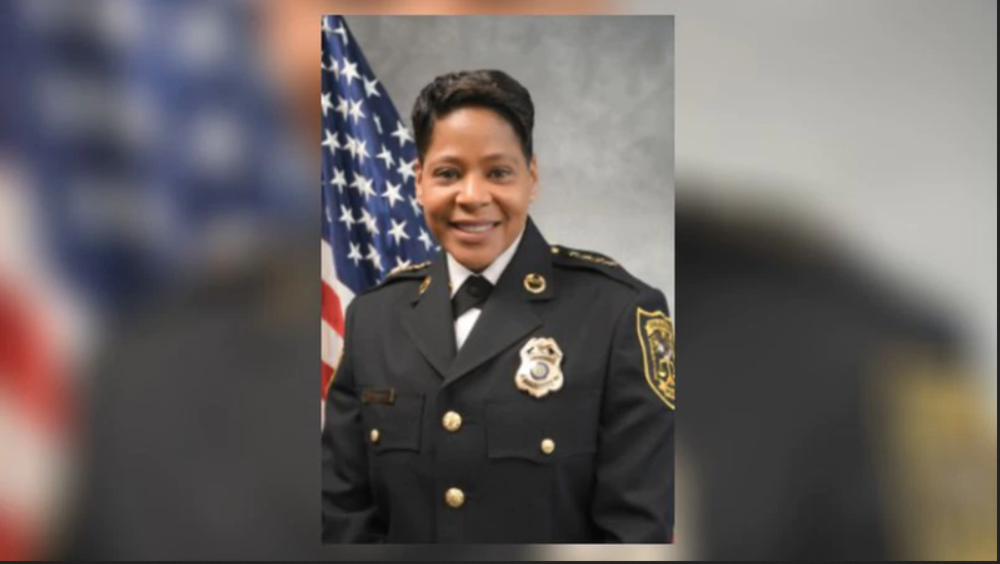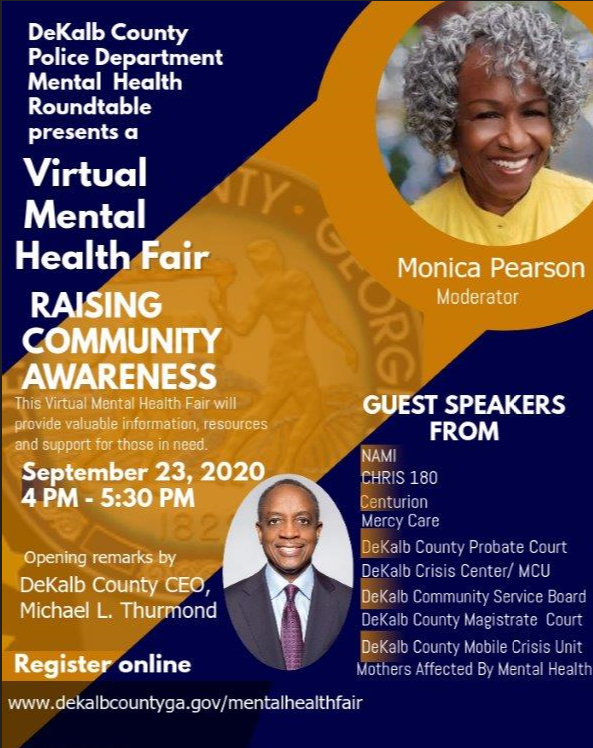
Section Branding
Header Content
DeKalb County Police Chief Hopes To Erase Stigma With Virtual Mental Health Fair
Primary Content

Officials knew in 2017 something had to change.
DeKalb County police fatally shot a 27-year-old man who had been struggling with schizophrenia, bipolar disorder and post-traumatic stress disorder.
It was not the first time police killed a military veteran in crisis.
RELATED: Policy, Training, Bias: The Issues Behind Ongoing Police Shootings Of Black People
The family of Quintas Harris told the Atlanta Journal-Constitution that the Lithonia High graduate and father of two started having troubles while in the Navy. After his discharge in 2011, Harris felt angry, disappointed and like he’d let everyone down.
On the day of his death, Harris told his mother he was pursued by voices telling him people wanted to kill him, the AJC reported. She begged him to take his medicine.
The scene is similar to the Johns Creek police shooting in 2018, when a woman with schizophrenia and bipolar disorder left her home with a steak knife, hearing voices and confused.
Mental health advocates held a town hall last week without police participation to discuss the nature of mental health crises and how these incidents can better be de-escalated.
Mental Health Town Hall: The System's Failure To Protect And Serve Woman Shot By Police
After the 2017 death of Harris, DeKalb County CEO Michael Thurmond formed the Mental Health Roundtable Committee to, in part, “improve our abilities to deescalate incidents involving persons experiencing behavioral health crisis safely.”
The roundtable includes members from criminal justice, mental health services, and family members of people affected by mental illness.
Chief Mirtha Ramos, who took over leadership of the DeKalb County Police Department last November, said the committee worked to expand crisis intervention training for officers and created lunch-and-learn opportunities.
Police learned, for example, to change the language they use.
“We now call it mental behavioral health crisis instead of (saying) ‘dealing with demented people,’” Ramos said. “So just being more considerate in how we view (behavioral issues) and how we address it.”
The committee stalled a bit as changes in leadership and then the pandemic took attention, but Thurmond reached out and asked about the committee’s progress.
“At that point, even though we had a change in command staff, we picked the ball back up,” Ramos said.
Ramos said they brought additional agencies to the table and decided because of the ongoing pandemic a virtual mental health fair would be the best way to restart the committee and engage the community, especially since the pandemic is hard on people’s mental health.
“I think it will be beneficial to most people because of the pandemic and because we're so limited in being able to go out and interact with others and get those resources that we need,” Ramos said.
In addition to local police officers and DeKalb County residents who want to know more about mental health resources, Ramos hopes everyone who is available will log on and participate.
“We really just want to be able to kind of get rid of that stigma,” she said. “Here we are. Let's have a conversation.”

The goal of Wednesday’s fair is to educate the community about resources available to assist them and their loved ones in the event of a mental health crisis.
The county has a 30-year partnership with the DeKalb County Service Board to staff a mobile crisis unit that pairs police officers with mental health professionals from the DeKalb Crisis Center.
The unit currently has one nurse, but has hired two additional nurses and they are currently being trained, Ramos said.
“So instead of one, we'll go to three units that can go out there, respond to anyone that's having any concerns or issues,” she said, adding that the units will follow up on previous calls when new ones aren’t actively coming in.
Police in DeKalb County are “growing with the times,” Ramos said, and they understand policing is different now than it was.
About a quarter of the department volunteered to take on additional duties with community policing initiatives, Ramos said.
“These are the officers that we have in DeKalb County Police Department,” she said. “This is what will make the difference with us moving forward, not only the CIT training, but the genuine care for our community.”
The mental health fair will be moderated by Monica Pearson and include opening remarks from the DeKalb County CEO.

